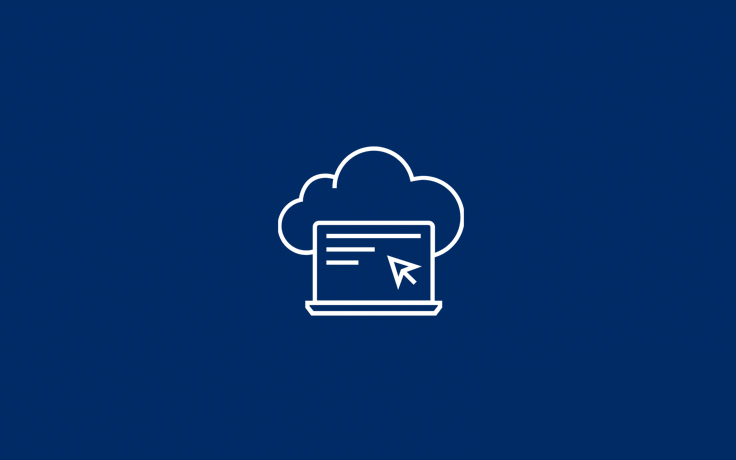
 back to all posts
back to all posts
Analyzing Cloud Product Adoption in the 2021 Retail Industry

Cloud spend in the global retail industry is expected to grow at an annual growth rate of 16.3% over the next 5 years (2021 to 2025). As more retail customers shift to online shopping, for public health reasons and for convenience, retail has increasingly become digital-first, both for customer-facing and back-office functions.
Millions of new customers have adopted and increased their online shopping in response to public health and social distancing concerns. Retailers have followed suit, shifting to a largely digital-first retail strategy. Global customers increased their online spending by $900 billion in 2020 compared to the prior year, and that trend will continue.
Retailers have scaled up their digital capabilities to keep up with surging online demand, and they’ve turned to the cloud for support. So how exactly is the cloud improving retail, in both customer-facing and back-office functions? Let's look at five factors making an impact.
1. Retailers are adopting better cloud inventory management tools
The cloud is enhancing inventory management, enabling retailers to track stock in real time across their organization and the globe. With just-in-time logistics and global supply chains, managing inventory efficiently has never been more challenging. The cloud helps retailers track inventory in real-time, while also enabling them to anticipate customer buying patterns in order to have the right products in stock when and where customers want them.
2. Retail companies are leveraging cloud computing for more personalized customer experiences
One of the major advantages of online retail versus physical is the ease of collecting customer data. When a customer visits your site, you can see what products they search for, what they buy, and when they buy. You can collect email addresses and other useful information to reach customers across multiple channels. Customer data can also help you segment and personalize digital messaging to better engage customers and nurture even more buying.
3. Adopting cloud technology is helping retail businesses with continuity and disaster recovery
Data is the fuel that allows a retail company to move towards revenues. Having essential customer and organizational data backed up and available in the cloud, instead of in vulnerable on-premises infrastructure only, allows retailers to maintain business continuity despite natural disasters or other potential disruptions to their operations.
4. Cloud adoption in retail is helping drive more sophisticated pricing models
Cloud technologies (like AI and machine learning) offer insights into how pricing affects buying behavior. Retailers can use this data to fine-tune their pricing strategies, ensuring that the pricing decisions made encourage customers to purchase their products while simultaneously maintaining the retailer’s profit margins.
Dynamic pricing requires a lot of analysis and number-crunching in real time – the cloud supports exactly that capability.
5. Cloud adoption in retail is improving security of customer data
Digital interactions are often the only ones you have with customers today, and these interactions generate loads of valuable data for your business. Besides customer data, your internal systems hold critical data on inventory, pricing, employees, and more. Protecting all this business data is absolutely mission-critical. The potential loss of data due to network infiltration, DDoS attacks, and ransomware is one of today’s biggest business risks. Data security is a problem the cloud effectively addresses, empowering retailers with important security features such as encryption, advanced firewalls, event logging, and more.
—
Intricately can see the adoption, usage and spend rates of retail organizations that are rapidly growing their cloud infrastructure to keep up with this evolving market.
Examples of Retail Companies Adopting Cloud Computing Software and Technology
Away is an American online and storefront luggage and travel accessories retailer. Headquartered out of New York City, it is best known as a luggage designer, manufacturer, and retailer.
- Estimated monthly cloud spend: $61K
- Cloud hosting providers: Amazon EC2, Snowflake
- Number of CDN providers: 3
View Away's complete cloud footprint in Intricately.
Nordstrom Trunk Club is a personal styling service created by retail giant Nordstrom in 2009.
- Estimated monthly cloud spend: $73K
- Cloud hosting providers: Amazon EC2, Oracle, Rackspace
- Number of CDN providers: 4
View Nordstrom Trunk Club's complete cloud footprint in Intricately.
Claire's is an American retailer of accessories, jewelry, and toys primarily aimed toward young girls. It was founded in 1961 and is based in Hoffman Estates, Illinois, a suburb of Chicago.
- Estimated monthly cloud spend: $59K
- Cloud hosting providers: Linode, Google Cloud, Microsoft Azure...
- Number of CDN providers: 3
View Claire's complete cloud footprint in Intricately.
—
Cloud providers have a lot to gain from this growing market. Generate more revenue with a full view of the global cloud spend in retail with Intricately.
This retail deep dive is just one of the many views of cloud product adoption, usage, and spend data that marketing and sales teams can make actionable with Intricately.
Intricately's Global Sensor Network actively monitors the adoption, usage, and spend of 23,000 distinct cloud products and analyzes the digital infrastructure of more than 7 million companies worldwide. We collect specifics on every product, from cloud hosting and data centers, to traffic management and app development – and much more.

3 Trends Shaping the Evolving Cloud Hosting Market

4 Ways Cloud Marketing Leaders Can Get the Most From Their Budgets in 2022

How to Perform Account Segmentation and Prioritization



10 Enterprises Leading the Way in Multi-Cloud Architecture


Cloud Spend in Healthcare Projected to Double by 2025: 4 Main Growth Drivers


